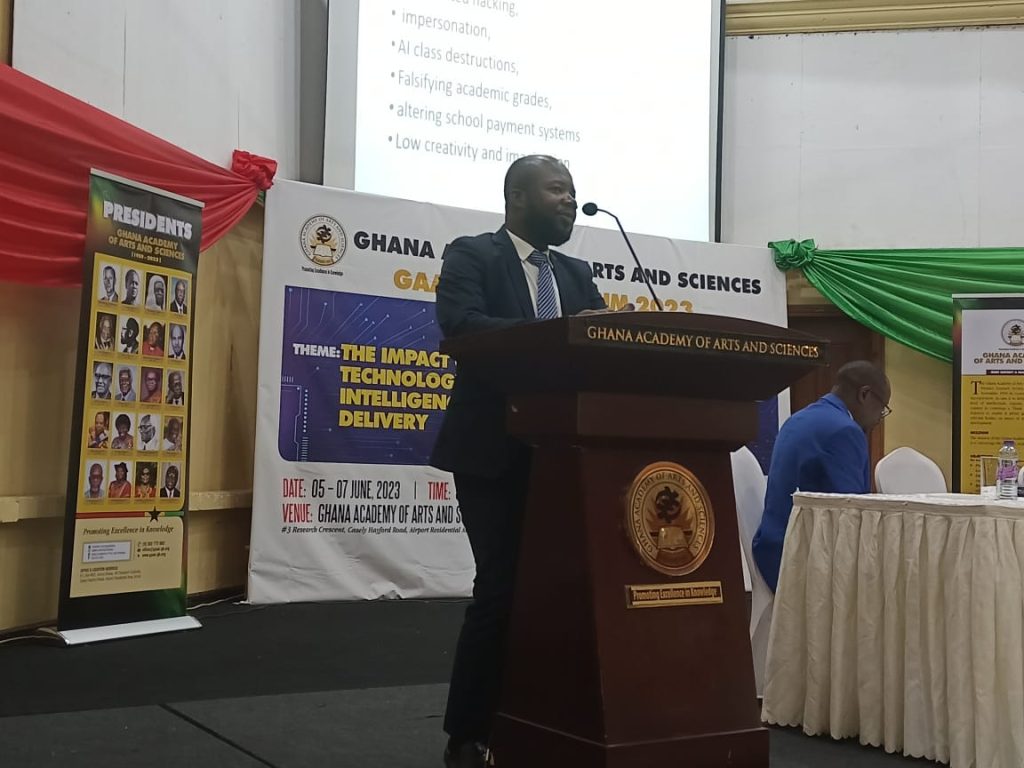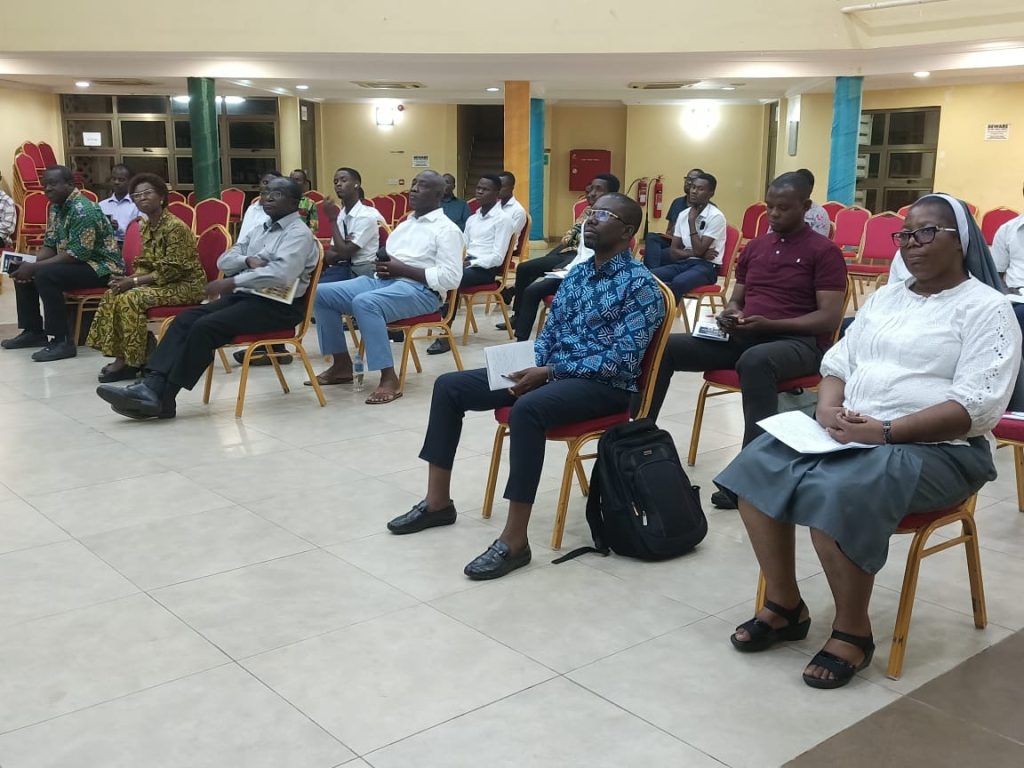By Edward Acquah
Accra, June 7, GNA- The adoption of Artificial Intelligence (AI) tools in education should complement traditional teaching methods and not a substitute.
The full-scale adoption of AI in Ghana’s educational system could devalue human connections and eliminate empathy, adaptability, and personalised support on the part of teachers.
These were concerns raised by Prof. Adebayo Felix Adekoya, Associate Professor of Computer Science at the University of Energy and Natural Resources, when he delivered a presentation at
the second day of the 2023 Ghana Academy of Arts and Sciences (GAAS) Public Forum on Tuesday.

This year’s forum is on the theme: “The impact of modern technology and artificial intelligence on education delivery”.
While acknowledging the ability of AI to enhance the creativity and employable skills of students, Prof. Adekoya cautioned about the nature and form of which tool to adopt in order not to “deprive us of our emotional needs”.
“Our use of AI in education must safeguard human dignity. It is essential to strike a balance between the use of technology and human interaction. Beyond the curriculum, there are other aspects of education that people pick up when they are in school,” he said.
There have been divided opinions about the significance of AI tools in education especially the deployment of applications such as ChatGPT to facilitate teaching and learning.

While proponents believe that such tools would make learning easier and equip students with technological skills suitable for the evolving job market, opponents of the technology caution that it could disrupt the self-analytical skills of students and “make them lazy”.
Prof. Adekoya said the country must understand what it needed and adopt technology that would best represent its identity and national development agenda.
“We need an identity and must set an agenda so that we can say that this is Ghana made,” he said.
Prof. Adekoya said data privacy issues must also be considered in selecting a preferred technology, adding that data sharing and third-party access must be controlled to avoid breaches.
Dr Richard Nkrumah, a lecturer at the Accra Technical University, said the country must begin to take steps towards the development of regulations to ensure that breaches associated with the use of AI tools in schools were dealt with.
“When there are no regulations, data breaches will not be reported,” he said.
Dr Nkrumah urged institutions to prepare themselves ahead of proposed legislations, so they did not face sanctions over intended or unintended breaches.
He said students should also be guided to develop codes for applications “from scratch” so that in an event of breaches, the persons responsible could be identified and sanctioned.
GNA